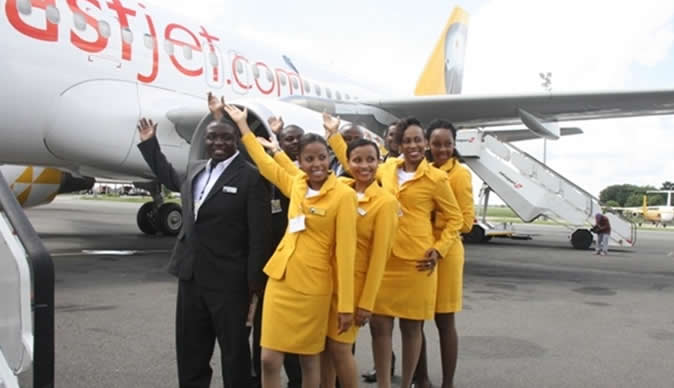RBZ grants fastjet permission to withdraw blocked funds
The Reserve Bank of Zimbabwe (RBZ) has granted Fastjet Zimbabwe permission to draw down
funds from the legacy loan (blocked funds) in local currency in the interim to pay off its creditors.
The legacy loans relate to foreign currency obligations of companies that operated in Zimbabwe
but failed to settle their external suppliers or institutions due to a shortage of foreign currency
prior to the country transitioning from the largest US dollar currency regime in 2019.
To preserve a good credit profile for Zimbabwe and maintain its image as a safe destination for
investment, the central bank made a commitment to remit the blocked funds over a prescribed
period. Companies that had foreign payments to make under blocked funds were asked to deposit
with the central bank the Zimbabwe dollar equivalent of the debt to be paid at 1 to 1 with the US
dollar.
Fastjet received permission from the RBZ in 2020 to include as legacy loans certain historic group
intercompany loans of US$22,5 million given to Fastjet Zimbabwe Limited as well as US$2,7
million in funds from company creditors in Zimbabwe.
Since Fastjet Zimbabwe initially began operations, a significant portion of the total group
intercompany loan capital has been made up of legacy loan debt.
The RBZ has acknowledged that the loans were made under the previous 1:1 currency regime for
investment and to continue support of the company’s operations in Zimbabwe with these licenses.
Fastjet said in a statement of financial results for the half-year period that the company was
awaiting the final position from the RBZ on the next steps to expunge balances under the Legacy
Loan, as new legislation is being drafted to govern this.
“In the meantime, the RBZ has allowed the company to draw against the legacy loan in Zimbabwe
dollar currency to settle fastjet Zimbabwe creditors. There is no guarantee of continued future
access to the legacy loan facility, despite recent successes in accessing these to date.”
In the first six months of 2022, fastjet Zimbabwe Limited increased revenue by 116 percent to
US$18,4 million from US$8,5 million in the first half of 2021 due to growth in passenger numbers.
Fastjet Zimbabwe’s operating expenses stood at US$18,2 million compared to US$11,7 million in
2021, driven by flight operations during this period being higher than pre-Covid-19 levels.
It said the major item driving the increase in costs is fuel, both in litres consumed and the price
paid per litre.
The passenger carrier, in the period under review, introduced a second daily flight service from
Victoria Falls to South Africa’s OR Tambo International Airport, Johannesburg.
In March this year, Fastjet also introduced flights between Victoria Falls and Mbombela
(Nelspruit) Kruger and Mpumalanga International Airport and Maun in Botswana.
The latest service will operate every day using the airline’s 50-seater Embraer regional jet ERJ145
aircraft.
At the time, the company said the daily service would boost the continued resumption of tourism
and other trade activities in the resort town.
“We continue to support the development of Victoria Falls as a regional tourism hub by providing
the much-needed seamless connections between the region’s top destinations,” the statement read.
Fastjet Zimbabwe’s load factor reached 78 percent while network on-time performance stood at 91
percent.
The airline operates four Embraer ERJ145, 50-seat jets, servicing all domestic Zimbabwean routes
as well as the international core cross-border routes between Zimbabwe and South Africa.-The Herald











